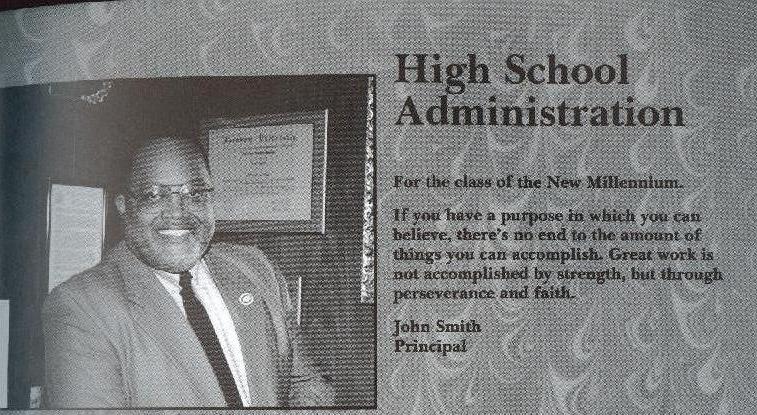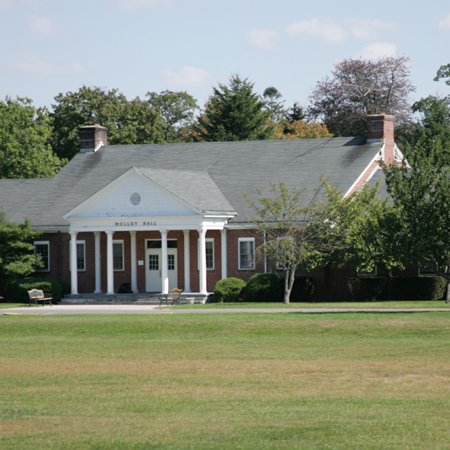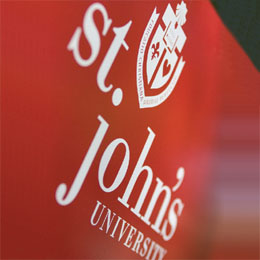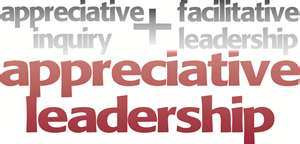|
Assistant
Principal: Duties and
Responsibilities
Goals and Objectives
As
an Assistant Principal I have important responsibilities which I
categorize into two main areas, management duties and
supervision of instruction. As an administrator I am charged
with the overall responsibilities of processing the budgetary
requests of
all teachers in science, as well as provide the necessary
support for my teachers who set up trips, projects, and/or
assemblies. With respect to student decorum, I
supervise the discipline of all 9th grade students; I will
continue to monitor their behavior as they move ahead as
underclassmen until they graduate. Then I will return to 9th
grade and continue to monitor their behavior for
four more years. In the area of instruction I
conduct informal and formal observations of teachers in several departments. I hold
department meetings, provide professional development in certain
areas, and monitor the articulation with the Reed middle school to emphasize a
curriculum that is aligned among the two schools.
Moreover, I supervise the formative and summative
assessment process in the area of science and foreign language.
Each day I strive to
complete many duties as an Assistant Principal at
Central Islip High School. My day begins with the pledge
of allegiance and continues with a discussion of students who
missed their previous day detention. After consequences
have been issued, I continue in dealing with referrals from the
previous day. Afterward, I take some time to "digest" a magazine
article about a current issue, and copy it for my department for
future reference usually until the next department meeting. Then, depending on the day of the week, I may
engage in a formal or informal observation. In the course of a
suspension report toward mid-day is the appropriate time to
complete the process.
During the late periods of
the school day I am especially cognizant of student decorum, I
am fully alert to react to some of the inappropriate behavior
in the hallways, and I am especially sensitive to any loud
outbursts that may arise as the school day draws to an end.
After the school bell to end the conventional school day,
invariably there is a meeting; either a meeting with a
subject department, or with parents in a site based management
meeting, or a parent conference with a guidance counselor, or a meeting with the
leaders of the building will take place.
As assistant
principal at the Central Islip High School, I have various
responsibilities in providing support to all stakeholders in the
community. I am committed to supporting my principal, Dr.
Franklin N. Caesar, in the daily operation of the school
building, the instructional support of the facility, as
well as assisting our parents and community members with their
concerns over the lives of the students in the high school
building.
The Doctorate Program is a Motivating
Force Which Has Improved My "Strength" and Given Me the
"Resolve" to Utilize Better Skills in Educational Administration
The doctorate
program at St. John's University at the Oakdale campus has been
a motivating force in my career as I carry out my professional
duties as an Assistant Principal at the Central Islip Senior
High School. I have learned many new skills in technology, and
in conveying information using the internet and other mediums of
the media. I have learned a great deal of information
about the historical development of the educational climate and
culture, as well as contemporary educational philosophy; I have
been able to cultivate an ability to make presentations to
various audiences, and I have been able to share my new
knowledge in interpreting quantitative and qualitative analysis
of data. In this website, I have utilized a metaphor of
weightlifting as a means for explaining how the courses I have
undertaken has made me stronger; not physically, but I now have
the resolve to utilize new skills, new talents, new information,
and new understandings in order to contribute as an
administrator for the benefit of our students today.
The professors
of the doctorate program at the Oakdale campus have provided me
with new core knowledge base in the area of policy, educational
organizations, technological expertise, interpreting
quantitative and qualitative data as well as designing tools in
order to gather data via quantitative and qualitative analysis.
The instruction, the cohort
model providing the organization, and the instructional strategies
providing a means for teaching our students, have given me a
wide base with which to share my new knowledge and skills.
There are many facets of my learning that have provided me with
a foundation for helping my students as I carry out my present-day
duties as an Assistant Principal. Ultimately, as I perform my
duties on a daily basis, I have many opportunities to to
share with our kids how I was able to overcome the many
obstacles as a child and to provide the means necessary to
become a productive citizen in our country. The doctorate
program at St. John's has enabled me to utilize what I have
learned in helping the next generation of students who may
come across our life's path, as well as share with professionals
the skills necessary to provide our students a sound base for
them to contribute to our society as they mature as adults.
Specifically, the doctorate program has provided me with several
professional capabilities. First, as a result of the
courses about website development, I have been able to develop
my own website which is on display at
www.omerocatan.com.
Beforehand, I was not very strong technologically.
However, under the tutelage of Dr. Hughes, I was able to utilize
the various methods of uploading, hyperlinking, downloading, as
well as utilizing various PowerPoint programs, Snapgraphics, as
well as my favorite astound programs in presenting information
about educational philosophy. In fact, there are many
pages on the website of the The Central Islip Senior High School
website where I created slide shows, displayed action pictures
of special events, and uploaded letters about the after-school
Regents review courses as well as the Bilingual After-school
Programs which are written in English and Spanish. There
are other presentations on display on the Central Islip Website
I created as a direct result of the instruction handed down from
Dr. Hughes in his courses.
While website
development is not a novelty, it is not an ordinary capability;
however, I am now able to utilize my new skill in creating a website in order to share
my personality, my professional background, the curriculum, and
the information I learned in the doctorate program; this website
is a valuable tool for me to communicate with the parents and the community.
During this courses in website design, I was able to build this
website which includes a home folio, a personal folio,
a professional folio, a learner folio, an expert folio, a
scholar folio as well as a site map. In each of the folios, I
have been able to convey some aspect of my educational,
professional, and/or professional experience from the doctorate
program at St. Johns' University. Imbued in these pages is
my philosophy about
leadership as an administrator at the Central Islip
Senior High School, as well as my dissertation topic, which is
to ascertain whether middle schools are operating effectively to support
young adolescents in sixth, seventh, and eighth grades as
promulgated over the last three decades. Overall, the
metaphor of weightlifting is omnipresent as I explain areas of
educational philosophy. As you peruse my website you will notice
aphorisms, and visual representations about weightlifting which
has not only a constant thread connecting my personal abilities
in weightlifting exercises, but I have also become
stronger in other areas of my life as well. My
presentations were not very aesthetic at first. However, I
became stronger in my resolve as I developed a better
understanding of how to make presentations and utilize
technology in doing so. As Assistant Principal, I hold
assemblies, attendance conferences, field trips, and department
meetings in the area of science and English as a Second
Language. During these events, I am confident in disseminating
information pertinent to the issues at hand and the audiences
are clear about my suggestions and directives in future actions.
As stated earlier there is a lot of information that I have been
able to cultivate, organize, and ultimately present to others about
important issues relating to the ultimate goal of improving upon
and communicating high academic performance of students who must
attend schools today, which are very different historically.
Over the past few decades, No Child Left Behind has been the
basis for developing reform models in various levels of
education. Much different from several decades ago, we now
have an emphasis on standardization of objectives and goals
which state acceptable levels of student academic performance on
certain subjects, and attach levels of financial support to
those schools which adhere to the standardized exam process from
NCLB era. There is a tremendous amount of political
pressure to bear on individual school districts where students
demonstrate what they know and can do; the assessment of
acceptable academic performance. The
doctorate program at St. Johns has provided me, as part of the
8th cohort, with skills in interpreting quantitative and
qualitative data as well as in utilizing information and data in
quantitative and qualitative measures in order to address the
issue of high student academic performance according to the
standardized approach. Dr. Smith and Dr. Dunlop-Taylor have
provided keen insight in quantitative and qualitative analysis
of data, which they believe can be utilized to improve student
academic performance. I am now strong enough to
carry the information to meetings via PowerPoint presentations,
Snapgraphics, and slide shows that can give others insight on
disaggregating information about student scores on certain final
exams. While I do not agree to the means for
arriving at the stated performance based upon standardization, I
can nonetheless utilize the information from scores in creating
curriculum to encourage leaders in the school district to accept
and utilize in order for our students to achieve acceptable
scores on exams relating to the technical approach emanating
from the standardization created from No child Left Behind.
The core knowledge acquired from the coursework in the doctorate
program has encouraged me to analyze the information from the
exams, I can nonetheless interpret the information in a
quantitative analysis and create programs utilizing a
qualitative or a quantitative approach, and share ways in which
to create a constructive curriculum and instructional
strategies, which can be utilized for a more effective student
academic performance, and provide an acceptable academic
performance level, while creating better educational culture and
climate in our buildings. Indeed, this is an illustration; the
above mentioned situation is yet an example of how I have been
able to utilize a conceptual framework for creating a new plan,
and implement the plan to provide a means for improving the
performance of students in our schools. Hence, I utilized the
information present to me by our professors about
Popkewitz, Tabachnick, Wehlage who authored the text, The
Myth of Educational Reform. This text is only one resource
in providing me with a plethora of texts, articles, and websites
and creating a "bank" of knowledge culled from the information,
I now am stronger using the new knowledge and explaining how I
can improve the educational clutter and climate in my
professional duties as an Assistant principal.
The doctorate program has also encouraged me to cultivate my own
leadership style as I carry out my professional duties as an
Assistant Principal, and I will continue to seek answers in my
approach to lead others. In fact, there were several courses in
the doctorate program which enabled me to identify my
personality traits, utilize a conceptual framework thought the
course of several texts, and professional journal articles, and
give me insight in developing a unique approach in encouraging
others in my school district. I now am more confident in
encouraging others to utilize their strengths for the purposes
of high student academic achievement. Leadership is
paramount to an effective educational culture and climate.
From several sources I have learned how to lead others in my
school district by scraping the "top down" approach; in other
words, telling others to accomplish their job is no longer an
effective means for inspiring them to perform at a high level.
As far as my teachers are concern, I have taken the professional
approach of collegial leadership style. This leadership
style has been inculcated in me for a variety of reasons. First,
there are teachers who do not respond well to being told what to
do. Second, i believe that there are many individuals who have a
better approach in providing a practice solution to present day
problems, without my intervention in manipulating the actions of
others simply because I am their "boss" does not bode well in
creating an academic environment that values high student
performance. Thought the auspices of Dr. Dunlop, i have
been able to create a leadership approach unique to my
personality with a high level of energy, to accept the
contributions of others in creating a game plan for high student
academic achievement. An example, is my new approach in
giving science teachers the opportunity to make a presentation
to a group of visitors interested in how we utilize formative
assessments for the purposes of doing well on the Regents exams.
By encouraging my teachers to create PowerPoint presentations
about the use of formative exams in improving student
performance in science, I am confident that the individuals
making the presentations will share information they learned
from individual research efforts to others not privy to the
information. In this way, all individuals will have
instructional strategies using information from the various
research efforts of all teachers in the science department.
Earlier in enjoying a positive rapport with my teachers with
relational trust being valued, I am able to provide feedback to
communicate to them useful information for reflection. Later,
all the members of the science department will be able to engage
in professional dialogue about the use of formative exams in
improving student academic achievement.

Mentoring is a valuable source of insipriation designed to
create strength in one's aboility to demonstrate what they
knkmowo and can do. As a
teacher in the middle school and high school level, I had a
mentor who encouraged me to further my education as well as
continue to hone my skills as a teacher. I was inspired to read
a great deal in order to remain current in pedagogy and
educational philosophy. I remember Coach Cipp in Bellport, Mr.
Harvey Palmore in Bellport. These individuals gave me an impetus
to carry on with my education until I earned a M.A. from Stony
Brook, New York. While at Hempstead, I learned a great deal from
Dr. Barbara Thompson (Williams), Mr. Reginald Stroghn and
finally Ms. Diane Brown. In fact, Ms. Brown was the first
to give me an opportunity at the ABG Shultz Middle School as a
Social Studies Department chairman. It was a terrific experience
and I was encouraged to expand my responsibilities as I
obtained a position first as a Dean of students and then as an
Assistant Principal at the Reed Middle School. While at Central Islip, I was blessed to receive tutelage about
leadership roles and responsibilities from my new principal, Mr.
John Smith, and later, Mr. Bracco as I enjoyed his tutelage at
the middle school. Today, I am proud to serve the Central
Islip School District at the High School as an Assistant
Principal. These days, I enjoy the tutelage of Dr. Franklin
N. Caesar, who is tirelessly encouraging me to continue when I
doubted myself and felt particularly weak. I firmly
beleive that mentors can provide a confidence in others
especially as trust is cultivated and reciprocated in education
about the issue of providng scholarly work and engaging in
dialogue about the content.

My first contact with St.
John's University at the Oakdale campus began with a
presentation by Dr. Jonathan T. Hughes, the director of
the doctorate program. I was mesmerized by Dr. Hughes and his presentation; I believed that
he was talking to me personally, and his concepts of leadership
gave me the impetus to matriculate into the doctorate program at
the Oakdale campus as a result. Earlier I had taken
administration courses at St. John's University
at the Queens Campus, where I earned a professional diploma. I
enjoyed my experience and learned a great deal, especially from
Dr. Giessert, who shared his leadership philosophy as he carried
out his duties as superintendent in various locations. Below you may see the Oakdale Education Building where I
attended many classes and spent a few summers learning
invaluable leadership skills, I now feel confident in my
ability to
utilize many others skills in technology, organization,
governance, and accountability.

The Education Building at the Oakdale Campus of St; Johns.
The Doctorate Program
was very labor intensive and I have never had so much fun. I
enjoyed going to my classes as I became stronger as my
confidence grew in the area of being a leader as an
educator. The first few courses were designed to introduce
me to the rigors of academic research, as well as reviewing
technological innovations. Indeed, district leadership,
systems approaches, and traditional instructional strategies
were reviewed as a foundation for changing the manner in which I look at
leadership approaches in my position as Assistant Principal.
Also, there were other courses which were instrumental in
encouraging my cohort and I to share our academic strengths in
order to delve into an organized approach in research.
Especially fulfilling was a course in which data is scrutinized
and a conceptual framework is developed in creating a
philosophy of education utilizing a text, Policy Paradox ,
written by Deborah Stone. My professor, Dr. Frank,
Smith, utilized this text to demonstrate how data may be
manipulated, even objective facts in bringing a convincing
attitude about their inferences at data; I was able to explore
data using different lenses, and learning that even objective
data, can be utilized in an attempt to present a cogent
point of reference in an endeavor to explain and convince
someone about their point of view. Debra Stone was a great
resource as I utilized her conceptual framework of comparing
and contrasting the utopian society and/or the market society
with respect to the political world. In addition, I
utilized Stone's viewpoint about a politically charged
world and political perspectives compared to cultural,
theatrical, as well as other perspectives as a way of viewing
research and essential points of view. In other classes I
learned a great deal in a general sense referring to how to
develop a connectional framework, which is a comprehensive
thought process in justifying my thesis statement in writing a
dissertation. Bolman and Deal, in Reframing and Reform as
well as Carlson's Political perspectives, were influential in my
thought processes as I began to utilize scientific processes in
culling out unnecessary and non-useful information in arriving
at appropriate responses in my quest for explaining my
conceptual frameworks. Dr. Bernice in his course of scrutinizing data by
utilizing SPSS as well as Dr. Hughes' approach at creating
charts and graphs while determining a school milieu, gave me the
ability to comprehend the difference between quantitative and
qualitative research.
As a result of
my experience as an Assistant Principal and the invaluable
lessons I have learned at St. John's University, I am fully aware of the
myriad of responsibilities of not only my position, but I have
been able to glean from my courses at the Oakdale campus an
array of duties of all leadership positions at the building
level as well as at the district level. What lessons have
I learned? How will I benefit from my experience from St. John's
University? What experiences are unique to the Oakdale Campus?
How can I translate what I have learned to help our youth
presently, and in the future? These are essential questions
which I believe I can answer confidently, now that I have
completed the first part of the program responsibilities.
As you peruse the plethora
of courses I completed on the learner page, you will notice that
there are divided into several areas of responsibilities or
themes in education. In particular, each course was
designed specifically to hone my skills in leadership,
organization, technology, knowledge in quantitative and
qualitative research, as well as policy and politics. My
metaphor signifies that at the inception of my journey at the
Oakdale campus whereas I was aware of the many lessons I needed
to learn before I would become truly ready to handle the
pressures and responsibilities a leadership position at the
building or district would entail, I did not fully comprehend
just how "weak" I was until I delved into the research
projects and completed new aspects of quantitative and
qualitative research. I was also able to create PowerPoint
presentations utilizing the themes of certain facts and creating
an explanation derived from factual information; and I was
able to utilize technology for my presentations. Upon the
completion of each course, I become "stronger and stronger" in my
resolve to keep abreast of my new knowledge and skills, and I
become aware of how to deal with new themes.
All in All, over the
course of the last few years I have learned a tremendous amount
about education, how scholars have sought ways to improve our
education, how reform models have affected the curriculum, and
how much the operation of our schools have changed over the
years. From the inception of the doctorate program, I was
weak; however, after each course, as one would increase the
weights on the bar when doing weightlifting exercise, I grew
stronger with time and increased repetitions; my resolve to
share my new skills in technology, in interpreting quantities
and qualitative data, in using data to present a cogent
explaination about curriculum development, and in sharing my
knowledge with others, I grew strong enough to prepare my
teachers with a collegial leadership style, to teach our
students


Below are several research
websites which will be utilized in my dissertation.
100
Research Websites
Below are several links to
important authors and texts.
Best practices Best Thinking in Emerging Issues in Education
Black Feminist Thought by Patricia Hill Collins Multicultural
Education
Trust in Schools, By Bryk and Sneider, part I
Reframing Organizations By Bolman and Deal
Mullticultural Text Organizational Culturey Schein
Organizational Behavior in Education by Robert Owens
Trust in Schools Bryk and Schneider
Good to Great by Jim Collins
Eight Styles of Learning
Moral purpose
From Cooperation to Collaboration by Dr. Jonathan T. Hughes
Keizen explanation
List of Textbooks at St. Johns' University
Mentoring for Success by Dr. Dunlop-Taylor
The Myth of Educational Reform by Popkewitz, Tabachnick
and Wehlagee
Mentoring For Success
Organizational Behaviori n Education
Policy Paradox
SERGIOVANNI Leadership and excellence in schooling
Reframing Organizations
Building Civic Capacity
Black Feminist Thought by Patricia Collins
Good to Great by Jim Collins
Policy Paradox by Deborah Stone
The World is Flat by Friedmann
Howard Gardner, Multiple Intelligences and Education
The Fifth Discipline: The Art and Practice of the
Learning Organization
Measuring student relationships to school: attachment, bonding,
connectedness, and engagement
Sergiovanni
Savage Inequalities Book Review

|











